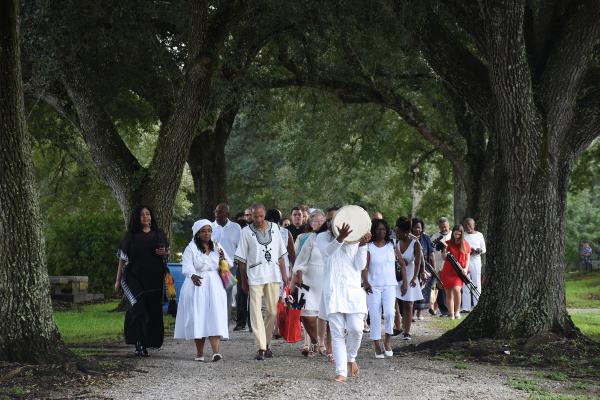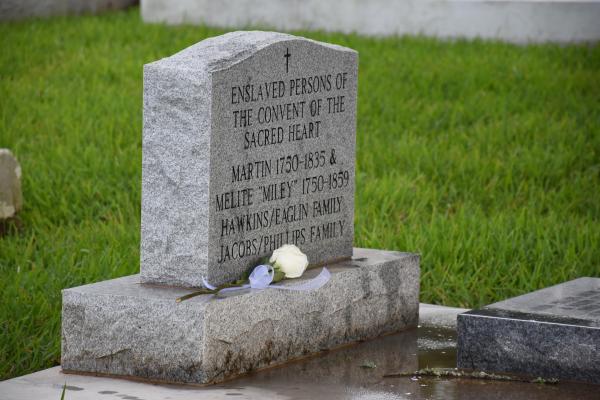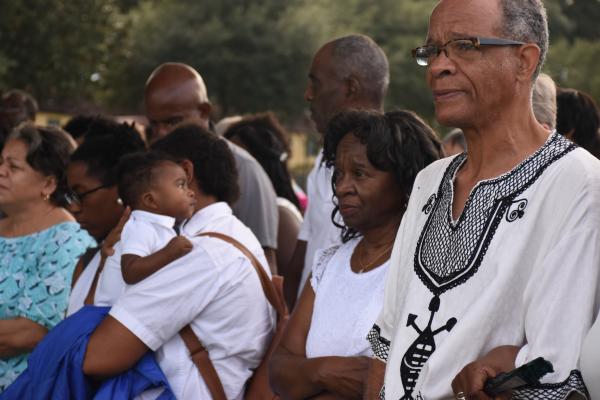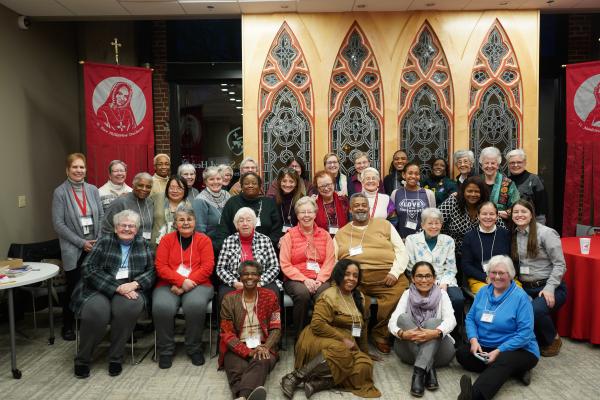In the fall of 2016, the Provincial Team of the Society of the Sacred Heart, United States – Canada Province, constituted a committee with the mandate to focus on the Society’s role in racism and the enslavement of human beings. The committee completed their portion of this ongoing work in 2020.
The goal of this project was to acknowledging the Society’s participation in the structural sin of racism and the violence of slavery, to address this painful historical chapter, to honor these trafficking victims and their descendants, and to help transform ongoing racist attitudes and behaviors.
The province is working with the descendants of the enslaved women, children and men who built the foundation of the Society of the Sacred Heart in the United States, and they are also working to transform existing racist attitudes and behaviors both at the individual level and within those communities and institutions that bear the Society’s name. This commitment to truth-telling, healing and reconciliation for a better future is taking a variety of forms, including scholarships, meetings, gatherings of descendants, and virtual gatherings.
A series of reflection questions are offered as an accompaniment to an individual or collective reading of this material, so that readers can face these hard truths with courage and compassion. These questions are reproduced below.
In the words of USC Province, “Our history and present are bound up together, and the legacy of our ancestors is indelibly part of our own story. The stories of our own history are speaking to us today, calling each one of us to reflect on our own place in this ongoing, ever-unfolding story.”
Read more about ongoing reconciliation work (in English)
Watch the documentary, “Black Lives Entwined With Our History, Chapter 1” (in English)
Questions for reflection
As I prepare to enter into this reading,
I ask my heart to show me the truth of who I am and where I stand:
Where does my personal story fit into the collective story of the Society of the Sacred Heart?
From my perspective, who are the protagonists in that story?
When I reflect on how I use the words “we” and “us,” who do I naturally include in that circle? Who do I tend to exclude from it?
As I begin to read these narratives of our history,
I ask my heart to open wide in love:
How are all of these ancestors’ stories speaking to me in this moment?
With reverence and compassion, I pay attention to the emotions I am experiencing. How is my heart responding to what I am reading?
What is being broken apart as I read these narratives? What is being broken open?
As I contemplate these narratives in my own time and place,
I ask my heart to direct me to a place of hope:
What new and radical forms of love are being made possible for me in this space of breaking-open and breaking-apart?
What is being freed within me in this encounter with the truth?
How am I being called to reach within and beyond myself to join the work of collective truth-telling, repair, reconciliation and healing?
Section |History|International News
Province |United States and Canada
Tags |enslavement|history|racism|trafficking



